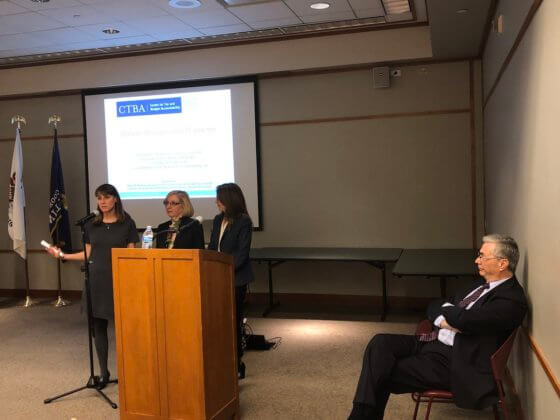If you live in Illinois and are not reading what Wirepoints is saying about failing Illinois, you need to start — here is Mark Glennon writing about what way too few Illinoisans will ever learn about unless Republicans and conservatives here learn how to fight the information war:
“If you have any questions about Illinois’ budget and pension crisis, buzz off and talk to the union guy.”
That might as well have been a sign worn by three Illinois lawmakers at what they called a “town hall” on the budget and pensions on Tuesday.
Not one of them said a word on the topic and each refused to answer any questions on it. Instead, they had their audience listen to a presentation from the guest speaker for over an hour and refused all questions, directing those to the guest. He was Ralph Martire of the CTBA, the Center for Tax and Budget Accountability, an organization heavily supported by Illinois public unions. His presentation focused on his usual core remedies for our crisis, well known to readers here: More borrowing, more spending and more taxes.
Many in the audience were not happy, to say the least.
The three lawmakers were Robyn Gabel (D-Evanston), Laura Fine (D-Glenview) and Jennifer Gong-Gershowitz, D-Glenview.
Afterward, Fine tweeted the picture on the right saying, “Thank you for everyone who came to our detailed discussion on IL budget & pensions w/ Ralph Martire.” In fact, the three had no role at all. The picture is from the introductions.
When constituents are invited to a “town hall” they should expect to hear their representatives’ viewpoints and ask them questions. They should expect at least to know if the representatives agree with the guest speaker. Not in Illinois. Just take what the union rep says. It was wonderfully emblematic of how Springfield is run in our one-party system dominated by public unions.
Martire’s presentation was a long form of his standard snow job, well known to regular readers here. His pension plan includes kicking the can by using pension obligation bonds to borrow to cover near term contributions and cutting the long term funding target to 70%.
Read more: Wirepoints
Image credit: www.wirepoints.org.

